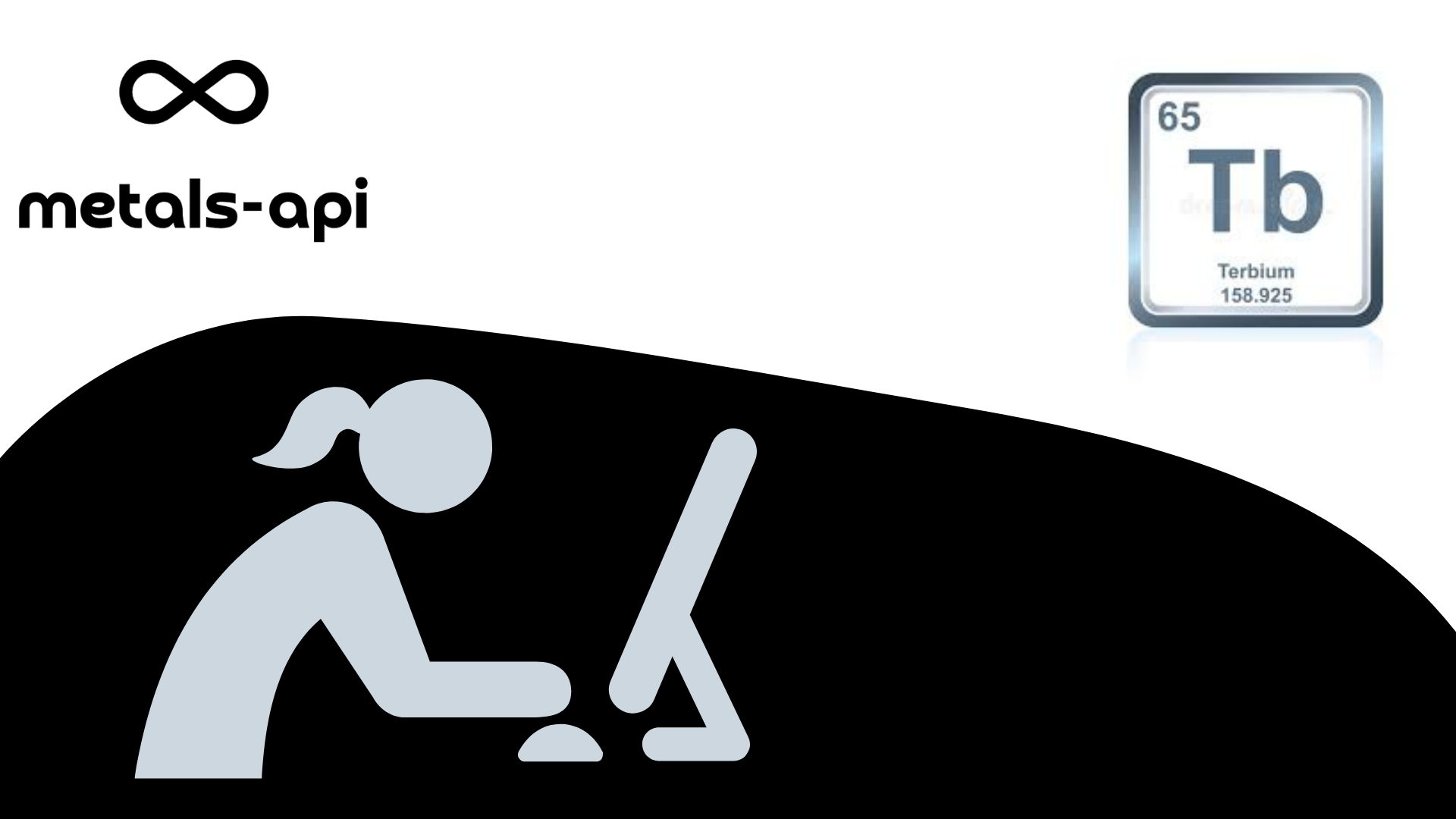Terbium Rate API: Ultimate Guide For Developers

In today's fast-paced world of technology and finance, access to real-time and accurate data is essential. For developers working with metal commodities, the API provides a reliable solution for retrieving live and historical data for various metals, including the rare earth element terbium. This guide will walk you through everything you need to know about using the Terbium Rate API.
Terbium Rate API: Ultimate Guide for Developers With Metals-API
What Is The Metals-API?
Metals-API is a sophisticated platform that provides real-time and historical pricing data for a variety of metals. This contains gold, silver, and rare earth elements like terbium. The API obtains data from reputable financial organizations, assuring great accuracy and dependability. This makes it an invaluable resource for developers, financial analysts, and enterprises seeking exact metal price data.
Relevance of Terbium Pricing
Terbium is a rare earth element utilized in a variety of high-tech applications, such as solid-state electronics, green phosphors in color television tubes, and compact fluorescent lights. Terbium's pricing can have a substantial influence on production costs and company strategy in various areas. Access to accurate and timely price data is critical for cost management, spending forecasting, and informed decision-making.
Key Features Of Metals-API
Real-time data.
The Metals-API's core function is the providing of real-time pricing data. This guarantees that consumers have access to the most recent pricing of terbium, which is critical for making quick decisions in volatile markets.
Historical Data
Metals-API provides users with historical pricing data for terbium. This tool is important for doing market analysis, recognizing patterns, and forecasting future prices. Businesses may learn about price patterns and market behavior by analyzing historical data.
Versatile Endpoints
Metals-API provides a variety of endpoints to fulfill different requirements:
Terbium prices are updated real-time.
Historical Rates: Look for terbium prices from certain dates.
Time-Series Data: Collect a variety of historical data points.
Conversion Endpoints: Convert metal values across currencies.

Getting Started With Metals-API
Step 1: Register and Obtain an API Key
To use Metals-API, first join up on their website and acquire an API key. This key is required to authenticate your API queries.
Step 2: Understand the API Documentation
Get familiar with the Metals-API documentation. The documentation includes thorough information on the accessible endpoints, parameters, and answer types.
Step 3: Make Your First API Call
To get the current price of terbium using the live rates endpoint, make a simple API request like this:
GET https://metals-api.com/api/latest
?access_key=YOUR_API_KEY
&base=USD
&symbols=TB
In this request:
- access_key: Your unique API key.
- base: The base currency, such as USD.
- symbols: The symbol for terbium (TB).
Step 4: Interpret the Response
The API response will be in JSON format. A typical response for the current terbium price might look like this:
{
"success": true,
"timestamp": 1625241600,
"base": "USD",
"rates": {
"TB": 421.50
}
}
In this example, the price of terbium is 421.50 USD per unit.
Advanced Features and Customization
Fetching Historical Data
To retrieve historical pricing data, use the historical endpoint. For example, to get the price of terbium on January 1, 2023:
ET https://metals-api.com/api/2023-01-01
?access_key=YOUR_API_KEY
&base=USD
&symbols=TB
Accessing Time-Series Data
For a range of dates, use the time-series endpoint. This can help in analyzing trends over a specific period:
GET https://metals-api.com/api/timeseries
?access_key=YOUR_API_KEY
&start_date=2023-01-01
&end_date=2023-01-31
&base=USD
&symbols=TB
Integration Tips
Efficient Data Management
Caching: Implement caching technologies to decrease API calls and improve response time. This is especially useful for historical data, which changes seldom.
Batch queries: If you need data for many metals or dates, combine your searches to reduce the number of API requests.
Error Management
Graceful Degradation: Include backup strategies to guarantee your application can tolerate API outages or rate limit exceedances.
Logging and Monitoring: Log API requests and track response times and error rates to swiftly identify and fix problems.
Conclusion
The Terbium Rate API from offers a reliable and efficient way to access up-to-date pricing data for terbium. Whether you need real-time data, historical analysis, or currency conversion, Metals-API provides the tools necessary for accurate and informed decision-making. By integrating this API into your applications, you can enhance your business operations and stay ahead in the competitive market.